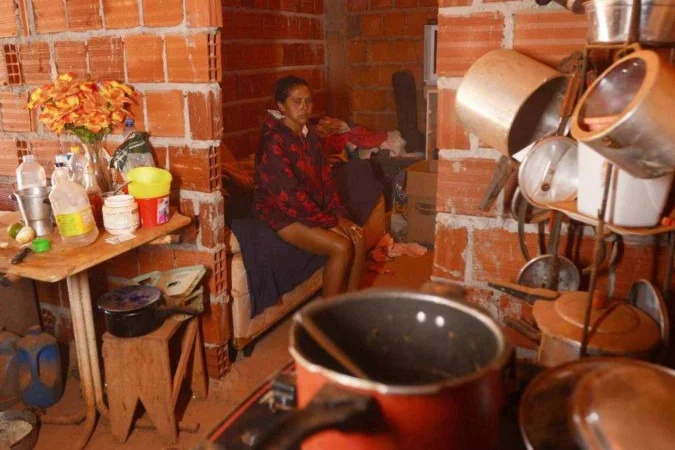Statement by Mr. José Graziano da Silva, Former Director-General of FAO and Director-General of the Instituto Fome Zero at the Global Forum on Family Farming
José Graziano da Silva | 15/10/2024
Excellencies, Ladies and Gentlemen,
first of all, I want to thank Director-General Qu for the invitation to share this important moment with him and all our friends here at FAO headquarters—the midterm celebration of the UN Decade of Family Farming.
I would like to begin by recalling why we started all this.
Until about a decade ago, family farms were often referred to as “small farmers,” sometimes implying that they were less important compared with “big farmers.”
However, focusing only on farm size can overlook important factors like land quality, the socioeconomic context in which they operate, and the diversity of products and services these farms offer.
Households managing farms typically have diversified income sources, including non-farm activities—a trend we expect will continue to grow in the future.
Ladies and Gentlemen, one of the key technologies driving the Green Revolution in the 1970s was mechanization, which favored larger farms. At that time, the small size of family farms was seen as a major challenge to their competitiveness.
However, advances in digital technology have completely changed that direction. Despite the diversity of small farms, a key common characteristic remains: they are all family-managed. The family continues to be the base for both production and household life.
In the early 1990s, national organizations, primarily composed of male farmers, began exchanging experiences and coordinating efforts through regional and international platforms.
This period saw the establishment of several key organizations, including La Via Campesina at the global level, COPROFAM in Latin America, ROPPA in Africa, and the Asian Farmers’ Association, among others. One of the main drivers behind these movements was the push to influence national governments to create public policies supporting family farming.
As part of these efforts, at the end of 2013, the International Year of Family Farming 2014 was launched by FAO and IFAD at the UN headquarters, highlighting the potential of family farmers to eradicate hunger, preserve natural resources, and promote sustainable development.
At that time, family farmers were already at the forefront of addressing the dual challenge of improving food security while preserving natural resources, even though many governments failed to recognize their efforts.
Excellencies, family farmers have long been viewed as a problem to be solved, often targeted only by social policies with limited productive potential.
The International Year of Family Farming 2014 allowed us to begin changing this mindset. Family farmers are no longer seen merely as a problem; they are also recognized as part of the solution to achieving global food security and sustainable development.
The UN Decade of Family Farming further acknowledges their central role in meeting today’s challenges.
Now, after five years of implementation, this forum will assess progress and set priorities for the next five years. FAO has highlighted that family farmers cultivate the most significant crop biodiversity in our rural world, which is crucial as we face the challenges of climate change.
While their contributions to providing nutritious and diverse foods are well recognized, we must not focus solely on their role in food production.
Unfortunately, many debates surrounding family farms overlook the broader role farm households play in rural development and environmental sustainability.
Family farms contribute to the sustainability of agrifood systems, maintain biodiversity, and provide vital livelihoods for billions of people in rural areas around the world. Supported by favorable policies, family farmers can help reverse the failures of the global food system.
If we want to pave the way for a smooth transition from the monoculture systems of our large plantations—which form the basis of agricultural production today—toward a more diverse and sustainable model that can adapt to a changing environment, we need to increase support for family farmers. They must not be seen only as part of our past; family farms must also be part of our future, provided they have appropriate policies to support their work.
Thank you for your attention.
Rome, FAO Headquarters, 15/10/2024



